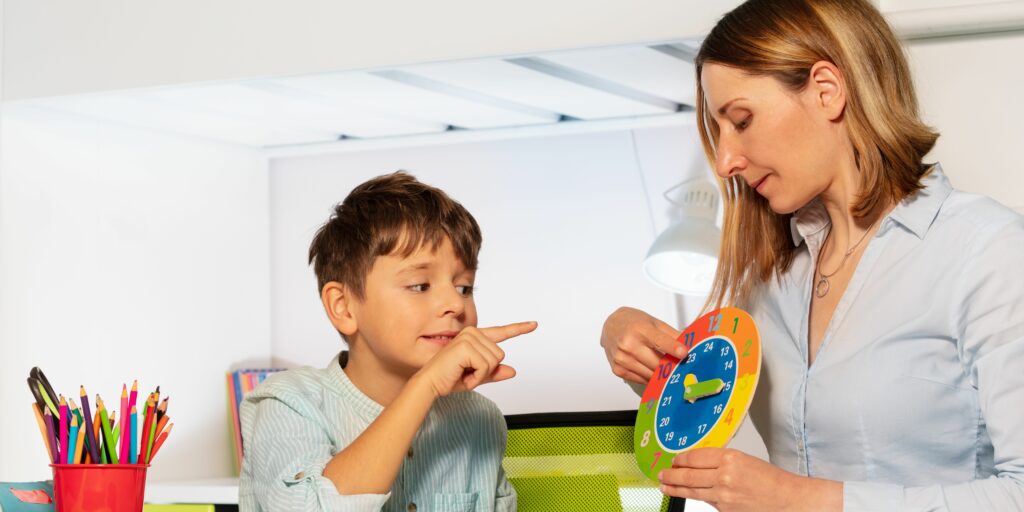My Child is diagnosed with Autism. What should we do now?

An Autism diagnosis can have a varying impact on many parent’s life. Many questions come up in our mind
- When will my child be cured of Autism?
- Will my child lead a normal life?
- What will be his future like?
- What is the best treatment?
Let’s understand what Autism is and what are the first few things to do after your child is diagnosed with autism. After all a child is a child first; the diagnosis does not define a child.
What is Autism?
Autism Spectrum Disorder is a neurodevelopmental disorder, that is usually recognizable by the first 2 years of a child’s life. Children with Autism may have difficulty with social interaction and communication skills. Some common symptoms observed are
- Lack of eye contact
- Have difficulty in using gestures or understanding gestures
- Difficulty staying on topic when talking or answering questions might be difficult for some children
- Repetitive behaviors e.g. hand-flapping, rocking, jumping, etc
- Fixations on certain activities or objects
- Some children have specific routines or rituals until they get upset when a routine is changed
- Extreme sensitivity to touch, light, and sound
- Fussy eating habits
- Lack of coordination, clumsiness
- Impulsiveness (acting without thinking)
- Aggressive behavior, both with self and others
- Short attention span
What are the things to do after your child is diagnosed with Autism?
- Understand your child’s communication – observe your child and see how he communicates his needs. Some children drag the parent or caretaker to the place where snacks or toys are kept, while some kids may point to the items they want. Every time the child tries to communicate his needs, name them and give them to them. Create needs for the child to communicate and moreover help him communicate in a more meaningful way. You can speak to the speech therapist about how to work on improving your communication skills.
- Understand your child’s sensory needs – Children with autism perceive things differently. Their senses are normal but may be over-sensitive or under-sensitive to certain senses. Our understanding of the child’s sensory needs helps us to know why the child reacts to certain stimuli differently.
- Structure the environment – A child with autism will work well if the environment is structured. Use a lot of visual schedules to let them understand what they are expected and get them to visualize what we communicate with them.
- Early Intervention – Many pieces of research have proved that early intervention for children with autism has shown improvement in communication and behavioral problems. Most Early intervention program follows a multidisciplinary approach where 2 or 3 professionals work together toward child development. Parental involvement is also integral in Early intervention programs.
- Do not wait – I have seen many people waiting and hoping that the child will outgrow the problems and get better as he grows older. Hence, the earlier you meet the specialist, the better the pace of development.
- Keep the faith and do not give up – It may not be possible to predict how the child will be 10 years from now or 20 years from now. Also, each child will learn at a different pace. Therefore, it’s important to focus on one skill at a time and be consistent.
Common interventions that are recommended are:
- ABA (Applied Behaviour Analysis) – ABA uses evidence-based techniques to improve socially appropriate behavior. Also ABA therapy helps in improving communication skills, social skills, play skills, and daily living skills.
- Speech Therapy – The speech therapist will focus on developing communication. The inability to communicate leads to many behavioral problems in children with autism. A speech therapist will be able to help you work with your child to develop communication and developing social skills
- Occupational Therapy – The occupational therapist works on improving functional living skills, fine motor skills, gross motor skills, play skills, and visual skills.
- Sensory Integration Therapy – Sensory integration therapy involves working towards the imbalances in the senses and integrating the senses to aid n better learning and development
- Play Therapy – A child learns through play and the play therapist works on teaching the child to play appropriately. As a result, it helps in improving social and emotional skills
- RDI (Relationship Development Intervention) – RDI works much better when started very young. They start with developing a social relationship with the parents and other family members.
Additionally, If you need more guidance, please get in touch with us…